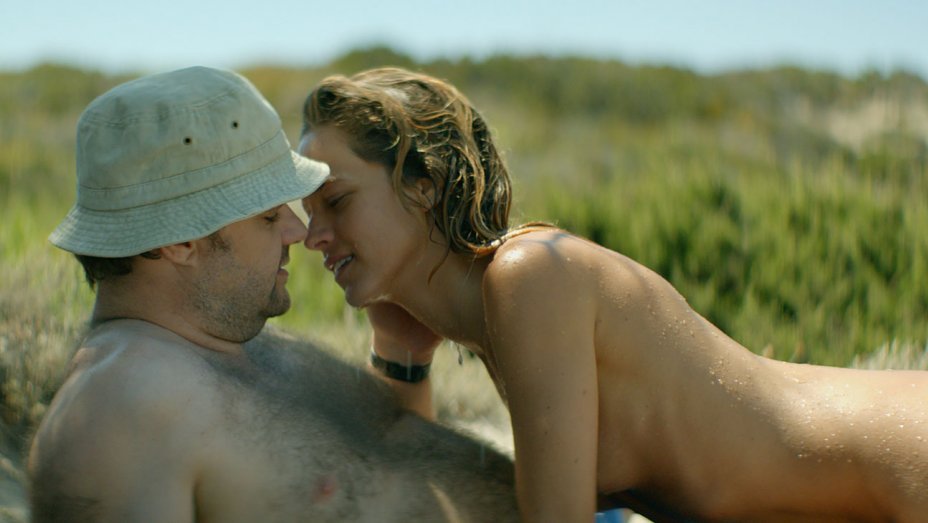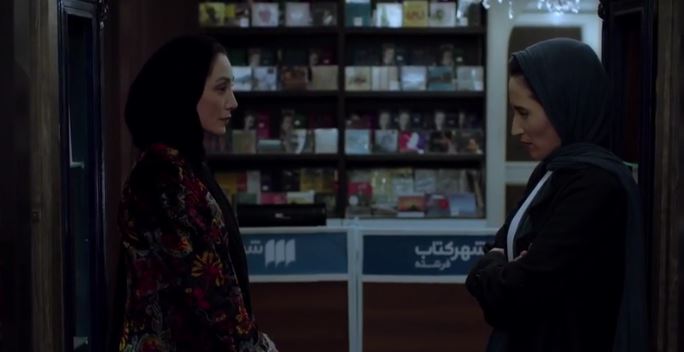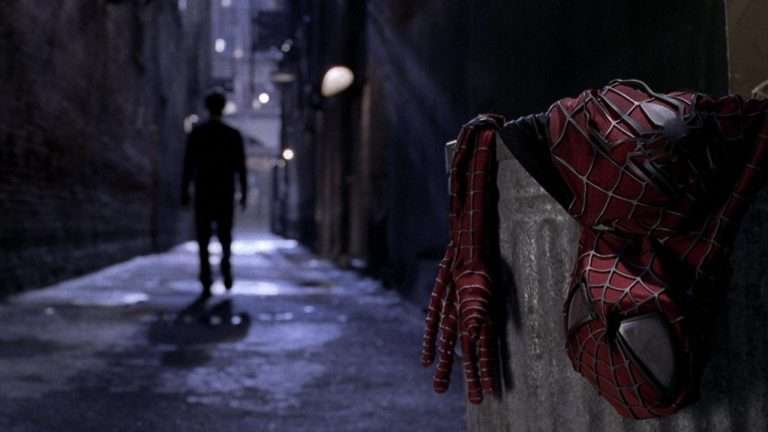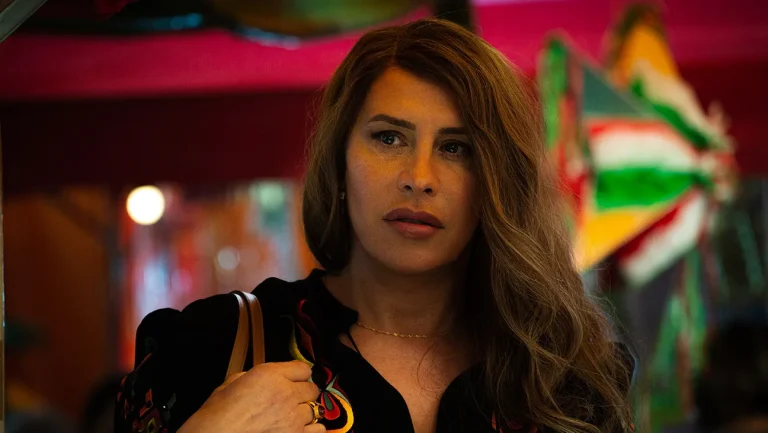5. Suntan | Dir: Argyris Papadimitropoulos | Country: Greece
A pudgy and bald doctor (Kostis, played by Makis Papadimitriou), who is romanticizing mid life crises, snares an opportunity on a picturesque Greek Island. He looks worn out, even the warm welcoming by the island inhabitants doesn’t cheer up him up. Like he is stuck in a perpetual phase of aloofness, all the energy has dried up and life hits a new low every day. Gloomy & reserved Kostis soon befriends a young, punkish and free spirited young group and he tries to find himself. He thought that surrounding himself with young people and behaving like them would liberate him from his midlife crisis, but things turn topsy turvy when Kostis romantic fixation for one of the girls turns into an obsession.
Suntan is an absorbing and tragic character study of a middle aged man whose uncertainty in the face of clear obsession is frightening, which drives him to humiliation and shame. A man who could not embrace the actuality of his age that leads to the toxicity of his character and eventually descending into sheer hopelessness.
4. Afterimage | Dir: Andrzej Wajda | Country: Poland
Sweeping the remains on the plate with his tongue to conceal his identity for a job that he detests, Wladyslaw Strzeminski, a Polish Painter who redefined space and how objects occupy them, and all his life and existence turn into a nightmare when his belief in the abstract art of socialist realism is not only repressed by Stalin authorities but dismembered and uprooted by Communist ideologies.
Andrzej Wajda’s swan song film paints the horrors of repression of ‘freedom of expression’ in the most tragic manner, of the Polish avant-garde painter Wladyslaw Strzeminski. Biopics are very tricky to make but in the hands of veteran film-maker Andrzej Wajda, we are sure that the film won’t be reduced to merely giving an insight into the life of Strzeminski, but also exploring art and its repercussion on artists and politics. The ideological conflict is debated upon and discussed at length to give a better insight into the political tension during the infamous Stalin period.
3. The Levelling | Dir: Hope Dickson Leach | Country: United Kingdom
Hope Dickson latches the drama in an understated and savagely realistic manner focusing more on characters’ body language than mere words. She uses loud and long silences as a mechanism to express the feelings characters even when they say something drastically opposite of it. It is in those silence that characters feel more vulnerable and humane without the facade of their deceptive characteristics.
The Levelling is a stark British social realist film that clutches deep into the heart of grief while it looks somber smooth from outside. The undaunting ego that runs in family, unexpressed emotions clouded by pseudo self-belief and stubbornness to accept the fate are strung together is such a subtle manner that even the tears rolling down are subdued by other emerging familial uncoverings that hit everyone like an emotional tornado.
Read the complete review here.
2. Dogs | Dir: Bogdan Mirica | Country: Romania
Imagine, densely layered, the slow-moving art-house drama of “Once Upon a Time in Anatolia,” meets unsettling scenes & nihilistic, cynical characters shot on the wide screen of “No Country for Old Men,” conceived by a Romanian film-maker, you get Dogs (Caini). The pensive score and widescreen cinematography conjure the precise mood and help to build the tension so slowly that you almost feel the heat of the scorching sun and taste the dust of barren land. Occasionally, screenplay tosses absurd dark humor to slack the growing restlessness.
Read the complete review here.
1. Duet | Dir: Navid Danesh | Country: Iran
Writer-Director Navid Danesh’s debut film ‘Duet’ is a subtle, psychological investigation of both the sexes & their reaction to the discovery of their spouses’ past affair. The doubt, jealousy, unreciprocated love, and unrequited love are worse of all as it grills you emotionally to the extent that you surrender to despair, question your existence and shatters all the certainties.
“Duet” sharply mixes these emotions of love in this multilayered tensive drama that never ceases to ease. Navid Danesh layers the drama with the string of a long episodic scene while stripping each character to its true self under such dramatic tension that even a minuscule fluttering of individual’s emotions could cause grave damage to an individual(s) whose scare would be impossible to heal.
Read the complete review here.












![Missing Johnny [2018]: ‘NYAFF’ Review](https://www.highonfilms.com/wp-content/uploads/2018/06/MISSING_JOHNNY_NYAFF_HOF_3-768x512.jpg)
![I, Tonya [2017] – A Dark Tale of Media Hysteria, Domestic Abuse, and Class Snobbery](https://www.highonfilms.com/wp-content/uploads/2018/01/cover2-768x384.jpg)